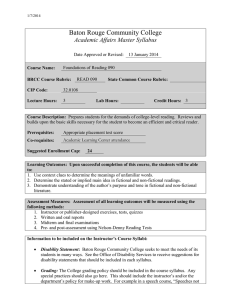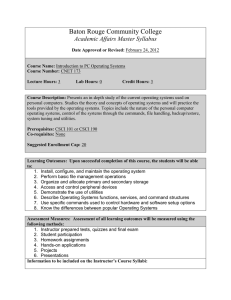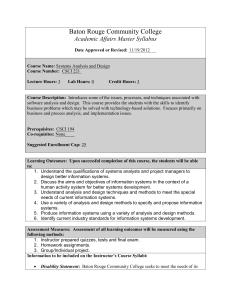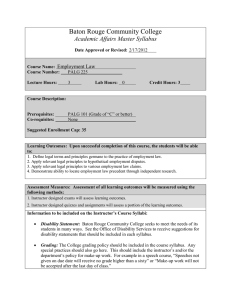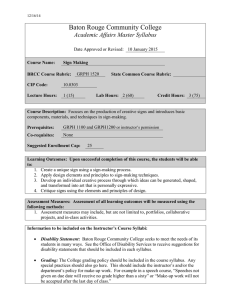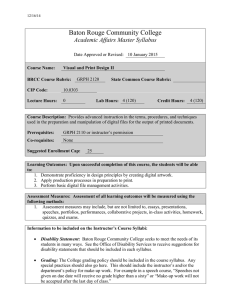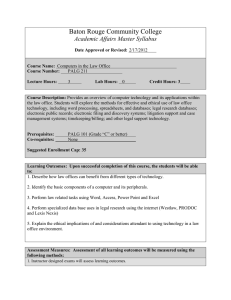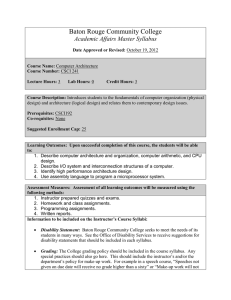Baton Rouge Community College Academic Affairs Master Syllabus
advertisement
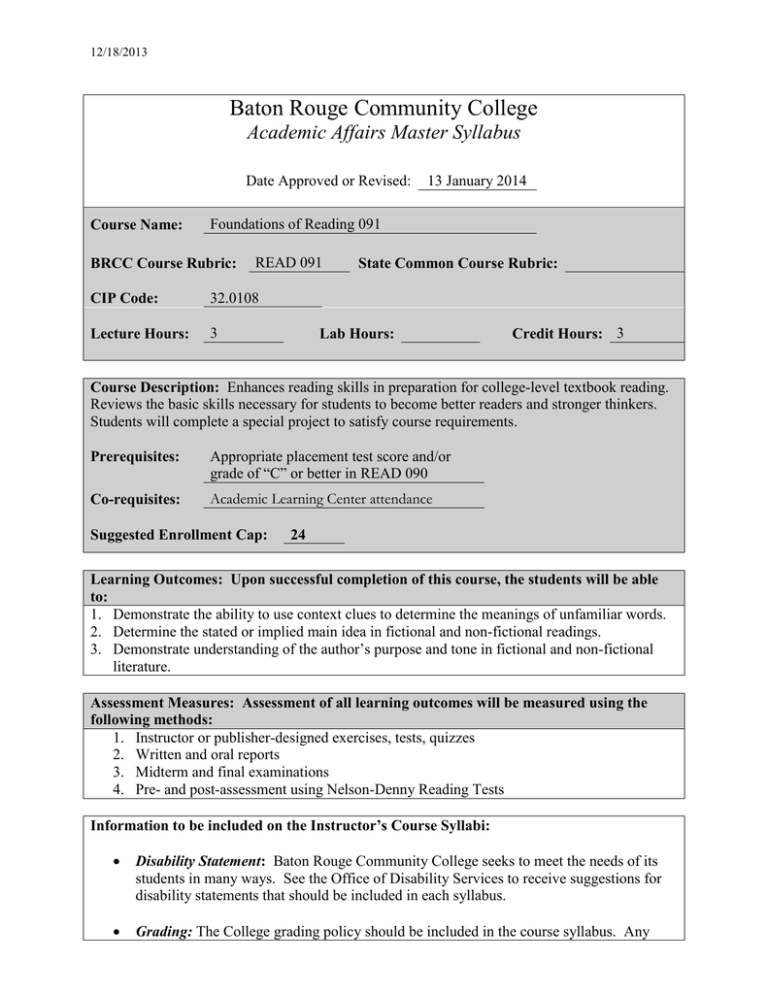
12/18/2013 Baton Rouge Community College Academic Affairs Master Syllabus Date Approved or Revised: Course Name: 13 January 2014 Foundations of Reading 091 BRCC Course Rubric: READ 091 CIP Code: 32.0108 Lecture Hours: 3 State Common Course Rubric: Lab Hours: Credit Hours: 3 Course Description: Enhances reading skills in preparation for college-level textbook reading. Reviews the basic skills necessary for students to become better readers and stronger thinkers. Students will complete a special project to satisfy course requirements. Prerequisites: Appropriate placement test score and/or grade of “C” or better in READ 090 Co-requisites: Academic Learning Center attendance Suggested Enrollment Cap: 24 Learning Outcomes: Upon successful completion of this course, the students will be able to: 1. Demonstrate the ability to use context clues to determine the meanings of unfamiliar words. 2. Determine the stated or implied main idea in fictional and non-fictional readings. 3. Demonstrate understanding of the author’s purpose and tone in fictional and non-fictional literature. Assessment Measures: Assessment of all learning outcomes will be measured using the following methods: 1. Instructor or publisher-designed exercises, tests, quizzes 2. Written and oral reports 3. Midterm and final examinations 4. Pre- and post-assessment using Nelson-Denny Reading Tests Information to be included on the Instructor’s Course Syllabi: Disability Statement: Baton Rouge Community College seeks to meet the needs of its students in many ways. See the Office of Disability Services to receive suggestions for disability statements that should be included in each syllabus. Grading: The College grading policy should be included in the course syllabus. Any special practices should also go here. This should include the instructor’s and/or the department’s policy for make-up work. For example in a speech course, “Speeches not given on due date will receive no grade higher than a sixty” or “Make-up work will not be accepted after the last day of class.” Attendance Policy: Include the overall attendance policy of the college. Instructors may want to add additional information in individual syllabi to meet the needs of their courses. General Policies: Instructors’ policy on the use of things such as beepers and cell phones and/or hand held programmable calculators should be covered in this section. Cheating and Plagiarism: This must be included in all syllabi and should include the penalties for incidents in a given class. Students should have a clear idea of what constitutes cheating in a given course. Safety Concerns: In some programs this may be a major issue. For example, “No student will be allowed in the safety lab without safety glasses.” General statements such as, “Items that may be harmful to one’s self or others should not be brought to class.” Library/ Learning Resources: Since the development of the total person is part of our mission, assignments in the library and/or the Learning Resources Center should be included to assist students in enhancing skills and in using resources. Students should be encouraged to use the library for reading enjoyment as part of lifelong learning. Expanded Course Outline: I. Review of Basic Word Attack Skills A. Phonics and Diacritical Marks B. Syllabication Rules C. Structural Analysis of Words II. College Reading Skills A. Vocabulary in Context B. Main Ideas C. Supporting Details D. Implied Main Ideas E. Use of Transitions F. Identifying Patterns of Organization G. Fact and Opinion H. Inferences I. Purpose and Tone J. Argument III. Other Major Textbook Reading Skills A. Outlining a Textbook Chapter B. Using Mapping in Textbook Reading C. Summarizing Reading Material 2
